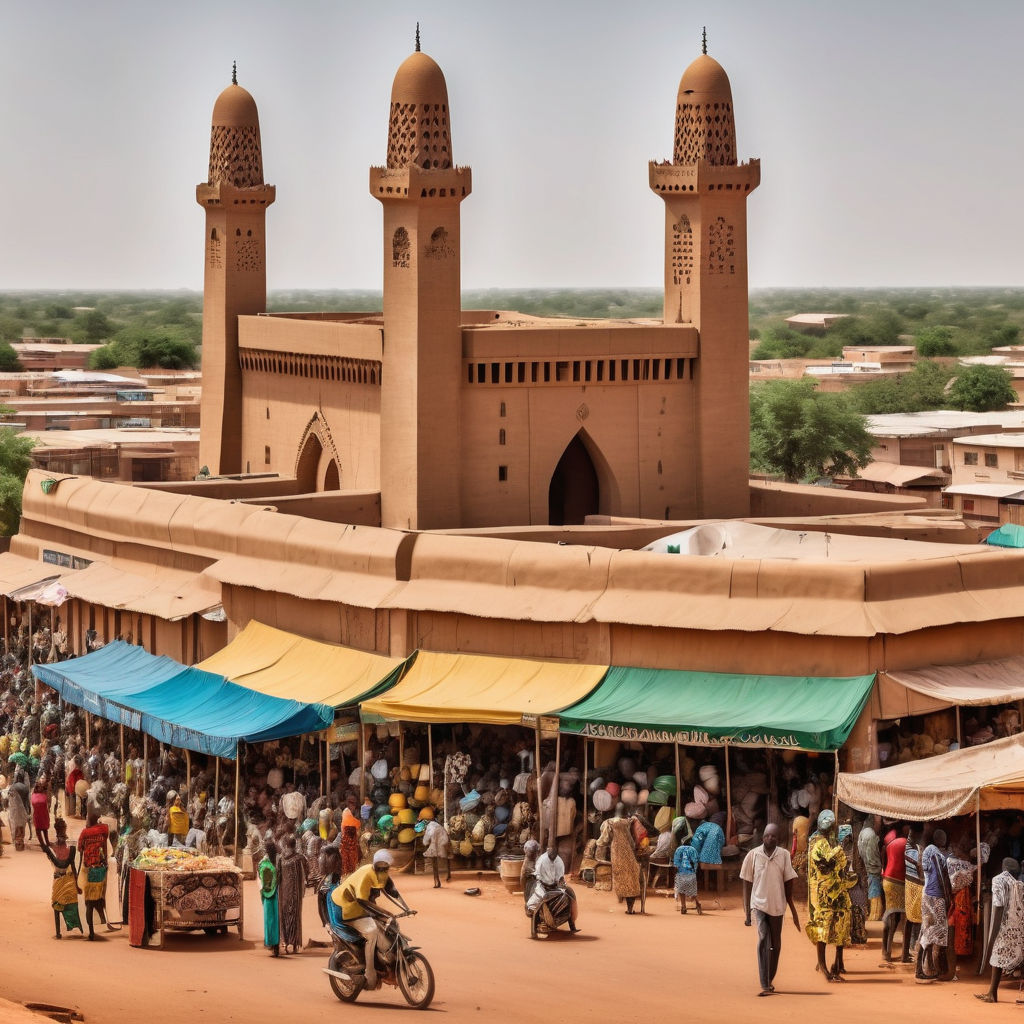Discover Burkina Faso: A Land of Rich Culture and Diverse Heritage
Exploring the Vibrant Traditions and Cultural Landscape of Burkina Faso

Introduction to Burkina Faso
Burkina Faso, a landlocked country in West Africa, is known for its vibrant culture and diverse heritage. Bordered by Mali to the north, Niger to the east, Benin to the southeast, Togo and Ghana to the south, and Côte d'Ivoire to the southwest, Burkina Faso covers an area of approximately 274,200 square kilometers. The capital city, Ouagadougou, is the cultural, economic, and administrative center of the country. Other major cities include Bobo-Dioulasso, known for its music and rich traditions, and Koudougou, a significant trade hub. Burkina Faso's cultural landscape is marked by various ethnic groups, with the Mossi being the largest.
Cross-national and Cross-cultural Understanding
Burkina Faso has a rich history of cross-cultural interactions due to its strategic location and diverse ethnic composition. The people of Burkina Faso generally perceive other cultures with curiosity and openness. Cultural exchanges are a significant aspect of Burkinabé society, facilitated by various educational programs and international partnerships. For instance, the University of Ouagadougou collaborates with numerous international institutions, fostering academic exchange and promoting global perspectives among students. The country is also known for hosting several cultural festivals that attract participants from around the world. The FESPACO (Pan-African Film and Television Festival of Ouagadougou) is one of the most prominent cultural events, showcasing African cinema and promoting cross-cultural dialogue. Such events create opportunities for Burkinabé people to engage with diverse cultures, enhancing mutual understanding and appreciation.
Interactions and Social Dynamics
In Burkina Faso, interactions between locals and foreigners are typically warm and welcoming. Hospitality is a core value in Burkinabé culture, and visitors are often treated with respect and kindness. Social behaviors in Burkina Faso emphasize community and familial ties, with a strong emphasis on mutual support and cooperation. Communication styles in Burkina Faso can vary depending on the ethnic background and region, but generally, people value politeness and indirect communication. It is common to engage in lengthy greetings and inquire about each other's well-being before delving into substantive conversations. This practice reflects the importance of building relationships and trust. Multilingualism is widespread in Burkina Faso, with French being the official language and Moore, Dioula, and Fulfulde among the most widely spoken local languages. Many Burkinabé, especially in urban areas, are multilingual, which facilitates interactions with foreigners. Language plays a crucial role in bridging cultural gaps and fostering understanding between different communities.
Views on Dating and Relationships
Attitudes towards dating and relationships with foreigners in Burkina Faso are influenced by a blend of traditional values and modern perspectives. In urban centers, younger generations tend to be more open to dating foreigners, viewing it as an opportunity to learn about different cultures and broaden their horizons. However, in rural areas, traditional views often prevail, with dating practices closely tied to cultural and familial expectations. Family approval is highly significant in Burkinabé society, and relationships are often seen as a union between families rather than just individuals. Introducing a foreign partner to one's family is a crucial step, and gaining familial acceptance is essential for the relationship's success. While public displays of affection are becoming more common in urban areas, they are generally frowned upon in more conservative regions.
Marriage and Family
Marrying foreigners in Burkina Faso is legally recognized, but it comes with certain considerations. Legally, mixed marriages require adherence to local laws and customs, including obtaining necessary documentation. Socially, acceptance of such marriages depends on the families involved and their openness to different cultures. Burkinabé weddings are grand celebrations that blend traditional and modern elements. They often involve multiple ceremonies, including a traditional wedding where customs and rituals specific to the couple's ethnic background are observed. Cross-cultural marriages can enrich the cultural fabric of both families, introducing new traditions and practices. Family plays a central role in Burkinabé society, and extended family members are actively involved in the marriage process. Cross-cultural marriages can sometimes face challenges related to cultural differences and expectations, but they also offer opportunities for mutual learning and cultural exchange.